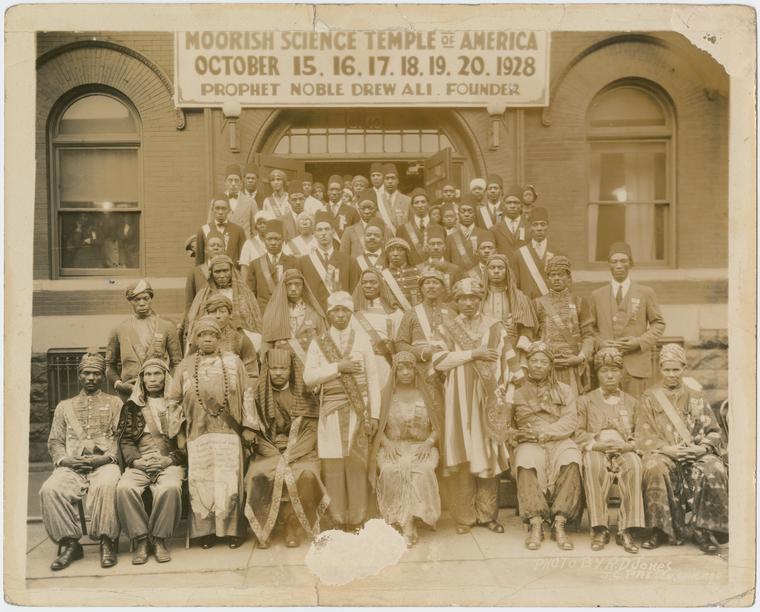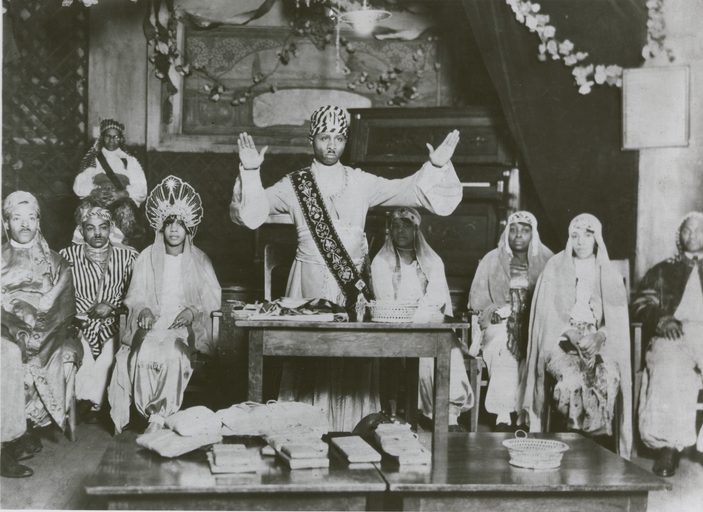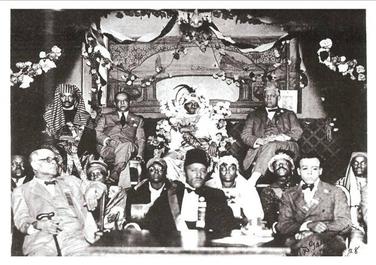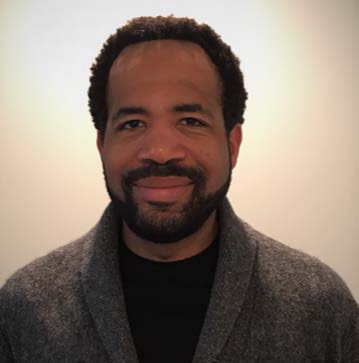It is a joy to comment publicly on such a thoughtful discussion about a fascinating book overflowing with careful examination, thoughtful analysis, and original comment. The recent conversation here at the Religious Studies Project between the interviewer, David McConeghy and the author, Spencer Dew, regarding his recent book, The Aliites: Race and Law in the Religions of Noble Drew Ali (Chicago: University of Chicago Press, 2019) covered many critical issues in a short time. My response to their discussion is twofold: a comment regarding the religious and political imagination of Aliite religious practitioners and thoughts about the study of Aliite religions.
Experiential Sovereignty and Aliite Optimism
The assured outlook and activism of Aliite communities stands out. In the introduction, Dew summarized why Aliites desire that their historical and legal claims be explicitly and formally considered by state sanctioned judicial systems. He wrote that this “stance emerges from an essential Aliite optimism that the legal system, however repeatedly unjust its rulings and processes, is nonetheless patterned on and swayed by the influence of the transcendent ideal that is true law.”1 However, in the interview, McConeghy further questioned how Aliites could remain steadfast in this belief. McConeghy asked Dew to comment further on how Aliites could derive a sense of affirmation and even success from judicial encounters where, for example, Aliite pro se representation concludes with the judge ignoring, dismissing, or otherwise delegitimizing Aliite legal knowledge. Dew responded that for Aliites “it’s not just win or lose,” and that “the charge can be dismissed, you can be sent to prison, but you can still feel that you’ve accomplished something.”2 Dew further explained this sense of accomplishment in terms of what he called experiential sovereignty, a feeling that, although perhaps fleeting, provides the Aliite legal actor with an enabling sense of recognition, even citizenship. Thinking broadly about the desire for recognition, Dew surmised that “It’s something we want, it’s something, I think, we desperately need.”3

New York Public Library Digital Collections. Accessed May 15, 2021.
Rather than focusing narrowly on the efficacy of Aliite legal strategies, Dew allows us to understand how recognition within the legal system provides a particular seduction for Aliite plaintiffs and defendants. In explaining this appeal, Dew differentiated the experience and expression of experiential sovereignty from the hegemonic power of state sovereignty. At the same time, he noted that experiential sovereignty, in the American context, arises from a distinctly American notion of respectability framed by a constellation of ideas including liberal notions of self-determination and self-improvement, allegiance to the state, civic virtue, Protestant piety, capital accumulation, and the comportment of self-affirming ethnic identities within the racial category of Whiteness. Aliite optimism originates from distinctly American ideas and practices of sovereignty, but it also determinedly seeks to reconfigure American legal notions and procedures.
I am struck by the implication in Dew’s analysis that Aliite historical perspective tends not to comprehend American history as tragic.4 This is a critical point in a response to McConeghy’s question about the Aliite resolve to participate simultaneously within and outside of governmental legal epistemologies. Dew shows that the Aliite insistence on the law of God lying dormant or partial in all people allows Aliites to frame American history, and world history, as ultimately progressive. In this conception, progress connotes a steady improvement from the imperfect to the perfect, rather than a dialectical process driven forward to an uncertain, or even certain, future by irony, tragedy, and ambivalence. With captivating detail, Dew notes how Aliite thought approaches the past in ways that reinforce or at least do not trouble its vision for the future.
Aliites did not tend toward the premillennial spectrum of American religious thought, in contrast to much, but not all, of early to mid-twentieth-century Protestant evangelicals. It is not difficult to imagine how a deeply cynical worldview would have rooted itself within a racialized urban community profoundly marginalized in so many ways. Yet, Aliites married a positive certainty to a determined pragmatism. Dew locates the origins of this optimistic pragmatism in the degree of political influence that early Aliites gained within the machine politics of early twentieth-century Chicago.

Aliite pragmatism did not deny racist ideas and structures. However, the Aliite understanding of history as teleological and ultimately progressive aligned with a view of racism more as a problem of individual behavior than as the result of endemic systems. As I understand the emphasis within Dew’s argument, the Aliite solution to racism has much less to do with the eradication of systemic ideas and institutions and more to do with Black people themselves forgetting, or leaving behind, their racial identities to embrace new (authentic) ethnic selves. This seems fanciful at best and misguided at worst, yet there is an important and underemphasized lesson here about how forgetting, intended and unintended, is and has been a significant mechanism for reformulating identity and imagining the future of community throughout American history. Racism could be abrogated by Black people sloughing off their racial selves. Remaking the self was the first step in remaking society, and in these processes of refashioning the self and society, Aliites left little room for the tragic.
The Significance of Studying Aliite Thought
The Aliite view of history is unique, but it is also not as exceptional as it might seem. Dew’s use of sovereignty to understand Aliite worldviews brilliantly highlights why the study of the Aliites, and the Aliites themselves, are broadly significant. Dew’s examination positions the Aliites at the center, rather than the periphery, of discussion and heated debate about the intersections between historical thought, ritual, and community and their relationships to the future of American democracy. Dew’s examination of the Aliites can be situated within the ways that Jean and John Comaroff explain culture, a realm of inherent contestation that arises from the dynamic interplay between invisible hegemony and visible ideology.5 The processes by which the Aliites imagine their history reveal much about how state sanctioned ideas and institutions gain and maintain seeming natural validity. The knowledge of the law presented by an Aliite is gained from a set of circumstances both shared and contested in relation to the law as it has been codified within the American state. Dew’s thorough historicization of the Aliite’s belief in true law demands a nuanced consideration of how practiced forms of sovereignty, are always multiple, relational, and fluid. This is a significant insight for the broader field of Religious Studies and for the insistence that Black political thought, in its immense diversity, matters.
References
- The Aliites, p. 12.
- “Interview: Race and the Aliites”
- “Interview: Race and the Aliites”
- My thinking about the relationship between tragic and pragmatic thought is influenced by Eddie S. Glaude, Jr., In a Shade of Blue: Pragmatism and the Politics of Black America (Chicago and London: University of Chicago Press, 2007).
- Jean Comaroff and John Comaroff, Of Revelation and Revolution: Christianity, Colonialism and Consciousness in South Africa. V. 1 (Chicago and London: University of Chicago Press, 1991).



